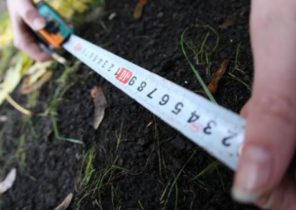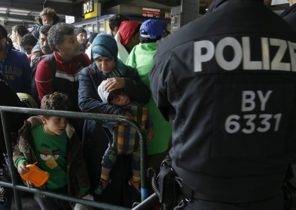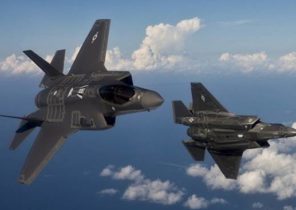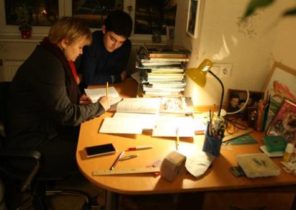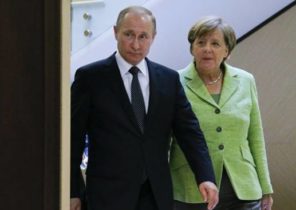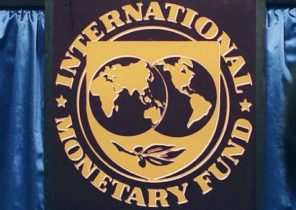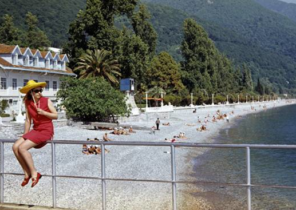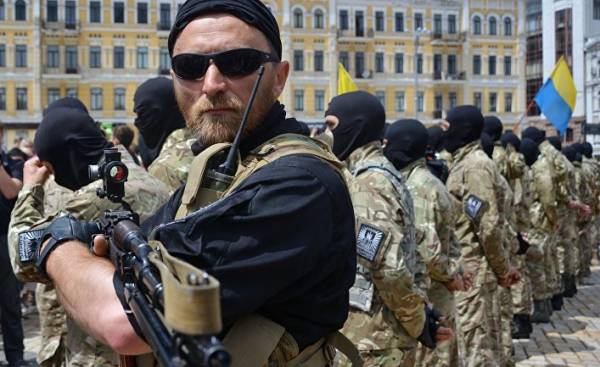
The commander of the Volunteer forces of National defense of Lithuania artūras Alaskas in an interview with UNIAN said how changed the tasks of the Lithuanian volunteer battalions since the beginning of the Russian aggression in Ukraine, why the state, in addition to the regular army, volunteers needed and the importance of the participation of the community in their support.
One of the most consistent allies of Ukraine in a hybrid confrontation with Russia — Lithuania. Vilnius regularly provides assistance Kiev, starting with the treatment and rehabilitation of wounded soldiers, ending with the transfer required to the ATO military goods. In addition, the Lithuanian military instructors to participate in the training of Ukrainian servicemen. Some of the trainers — representatives of Voluntary forces of National defense of Lithuania.
UNIAN talked with the commander of the volunteers of the Lithuanian Arturas Alaskacam, who recently took part in the round table “prospects of development of voluntary system of territorial defense in Ukraine”, organized by the Embassy of the Republic of Lithuania in Kiev.
UNIAN: When and how volunteer battalions appeared in Lithuania?
Artūras Anikas: This is very similar to your situation, which was in 2014, but we have it was in 1991. When on 13 January 1991 Soviet soldiers tried to attack our Parliament, the tower (after reaching Lithuania from the USSR — approx. ed.), citizens of Lithuania — tens of thousands of volunteers — have opposed them began to organize in self-defence, protecting the Parliament building and others. So, for 3-4 days there were volunteer forces of Lithuania. They took under protection all the important buildings in different cities, and also came to Vilnius to increase the number of units in the capital…
We [volunteers] are considered to be the first, who were born too late a modern regular Lithuanian army. From the beginning we even had two air squadrons, consisting of an-2 airplanes and sports, they also participated in defense in 1991. But to keep them profitable, so in the volunteer forces are only Marines. Today we are part of the Lithuanian armed forces cooperate with the regular troops, but remain volunteer connections.
— If volunteers are included in the structure of the armed forces, the difference between the volunteer soldier of the regular army?
— Our volunteer is a soldier of non-permanent service. He comes to train on the weekends or once in 2-3 months for 3-5 days… Only year where 30 days of training. Basically, training is held at the place of residence — each district has its own Rota. In addition, there are exercises of the regular army, in which we also participate.
— How much time has passed since the self-organization of citizens to create a full structure of the volunteer forces?
— All has occurred very quickly, within a few days. Officially our organization was established on 17 January 1991. I myself was a volunteer in 1991 and, in my experience, it took 4-5 years to structure fully formed. And so she became part of the Armed forces, it still took several years. We are constantly evolyutsioniruet — improve and coordinate the conditions of service of the volunteer in our power since the founding of the volunteer forces. This process is without end.
And how many volunteers there are in the structure of today?
— Around 4 thousand 700 people. I manage volunteers for two years and during that time we became more than 350. According to Lithuanian standards — a lot.
Volunteers can be men only?
— No, we have a lot of women — 14%.
— Is there any age limit to join the ranks of volunteers?
— We used to pay attention only to young people 18 years of age. Said that they need to invite. But we have a lot of male 35-45 years of age who, for various reasons, did not serve in any other army, and I say our special services recruiting that we need to pay attention to this group of people. By the way, this prompted the Ukrainian example, when the volunteers were people of very different ages. In addition, the average age of the volunteers we have for 27 years, and at the same time in Sweden is 47. We still have room to grow. And there is a segment in society that can increase the number of volunteer forces. Also we in our directory have increased the age threshold from 55 to 60 years old to those who serve 26 years old, but still healthy and energetic, able to continue service to that age.
— What is the motivation of citizens of Lithuania to join the volunteer force?
For 25 years we have several dozen volunteers who serve from the first day. Their motivation is that they have not forgotten what they came in self-defence: the old guard always knew and understood that there is a threat from the outside, someone could attack Lithuania. And no event, even joining NATO, have not changed their opinions. They have always believed: “who if not me.” Others came and are coming because they like the military, they understand that it is necessary to protect the homeland. Some people like that they can’t just get away from school or work, and to serve, to perform their constitutional duty — not to be a recruit and not to serve in the regular forces, but you can go to the volunteers and to you after 4 years will be counted as compulsory military service (volunteers sign a contract for 4 years, but may terminate it at any time). There are those who have done service in the regular army, but wants to continue to volunteer. There are those who just like adventures…
— Is it prestigious to be a volunteer in Lithuania?
— Think prestigious. Among the volunteers there are also businessmen, and mayors of cities… If you read their pages in social networks — are all proud of the service. By the way, one of my small victories as commander of — we started to write letters to the employers of our volunteers that they are such good guys. We do them a promotion.
— Have there been any changes in the activities of the volunteer forces of Lithuania after the Russian aggression in Ukraine?
— Yes, our objectives have changed. Volunteer force was not the territorial defence forces. Until 2014, the leadership of the Armed forces gave us other challenges that we had more ready to fight in the trenches, to help the battalions of regular troops, went on a mission, for example, in Afghanistan, in Iraq, individual soldiers were in other countries. But now we were set the task to provide territorial defense. And now we focusareas on this — learn to fight in an urban setting and in smaller groups to make us harder to catch and we were able to inflict more damage, the more damage to the enemy. I think that now we have returned to our origins, to what began the volunteer forces.
That is, now in working out some of the tasks plays a role and what the terrain is supposed to protect volunteer?
— Of course, it plays a role. It is clear that the battalion, which, for example, is stationed in Klaipeda, near the sea, more protected coastline… But the main thing in training — we have a single standards — to teach a volunteer to fight, to handle weapons, to understand the tactics. Then, in a short period of time, it would be possible to send it to the right place.
— As I understand it, these standards and tactics — the same experience that you share with us?
— While you have is not structured and not systematically, so not everyone who would like to participate in the defense of the country, satisfied with their contribution to it. This time we discussed that there is a project on the territorial defence forces, prepared in the national security Council, according to him, want to work… the First time I visited you a year and a half ago, we discussed our example, Estonian, Polish, and other countries. And gave impetus to the project. Overall, your armed forces need military training and exercises. This year our volunteers come to share their experience for the second time (last year our training was in Yavoriv). Via month 16 instructors from Lithuania will train your regular forces. Half of whom are professional soldiers, half of them volunteers. They are very well prepared.
— Are there any members of the Volunteer forces of Lithuania in the East of Ukraine?
— I do not know about this. A few people — citizens of Lithuania, not the volunteer was told that he had been in Eastern Ukraine as civilians. Can, boast…
— How is the financing of the exercise of the volunteer forces? You help some public organizations, foundations, and sponsors?
— We are a state organization, so we do not need anything to assemble. For those days that a volunteer is serving, the government gives him a sum of money prize. And, of course, provides him the whole training process. But, for example, in Lithuania, there are public organization “the Lithuanian Riflemen’s Union” (a paramilitary organization, which includes about 10 thousand people, is a special unit of the Lithuanian Armed forces and provides training for civilian self-defence, — the UNIAN), which itself provides — there is the membership fees. The Ministry of defence, for its part, helps to “arrows” that, in particular, pays the salaries of Executive staff. And also helps them to organize, especially in summer camps for young people where they train.
“The Lithuanian Riflemen’s Union” is a part of the volunteer forces?
— No, they are by themselves. But we have plans for cooperation and we now train together very often. If something serious happened, they would be included in our structure.
— In Ukraine, when it comes to the volunteer battalions, voiced a lot of myths, for example that sponsorship and support can become a factor of influence on volunteers, for example, from the oligarchs…
— At us such cannot be. We are under the unified command of the Lithuanian Armed forces. So can help who he wants, but there is a structure, and the command goes from one commander, one staff. In General, assistance is good. For example, Americans. I know examples of how they went to Iraq, and some held a businessman gave a million dollars to battalion and said, “Buy what you lack”. There were no obstacles for such sponsorship. I think this style should work. Still, creating a volunteer force, it is important that society is also involved in creating and maintaining this structure. When society can participate in the creation of a volunteer force, it participates in the support. And, in part, responsible for their activities and existence.
— Ukrainian society supports the defence of the country volunteer help. In Lithuania, the volunteers assist volunteers?
— Originally, and in itself a military structure of the volunteer force, and mentality, has led to expectations of assistance from the state. They say, which allocated the budget as given — as it should be. But I don’t agree with it. Therefore, from the moment of my arrival, trying to arrange funds so that people who want to join us, but are unable to help in the military, could help in another way. Moreover, the experience is already there — in Lithuania, were several times held the shares, when volunteers collected money and gave us specifically so we can buy additional equipment, something we lack. There are also some volunteers who came together and created a Fund to help the volunteer forces… it All started when our instructor began to go to Ukraine. We felt that should bring not only knowledge, but also some material help. Then we gathered the amount they were taken to the Ukraine to those families where there were dead. I said if we can help the Ukrainians, we can help ourselves. And now we begin such a movement. Maybe it will grow. There are good examples of Denmark, Sweden, Estonia, on which we can work.
— If we’re talking about such examples can volunteer to train and to perform tasks with the arms, which contains their home, like in Estonia?
— Someone volunteers may be weapons in the home, but during the camp we have a state weapon for training. It is protected in the company premises does not contain at home, as in Latvia or Estonia. Recently, “arrow” and we’ve got the right to have their own weapons for the needs of national defence.
— If there are exercises, the volunteers will be able to take this weapon?
— We’re working on it. The important thing is that we have such a right. Today we train and study with honorarium, personal weapons and volunteers can use to improve their skills.
— What do you consider your biggest victory in the volunteer movement?
— I think that this victory did not happen. When I began serving in the position of a commander, my goal was to increase our forces on 2 thousand volunteers. As I said, today was able to increase the number of volunteers 350 people. So my goal still needs to grow. On the other hand, there are a few small victories. Among them — change the age to 60 years. Or the fact that we managed to convince the Ministry of defence to pay the volunteer a certain amount, a prize, after completing the first contract… So the victory is still ahead.
